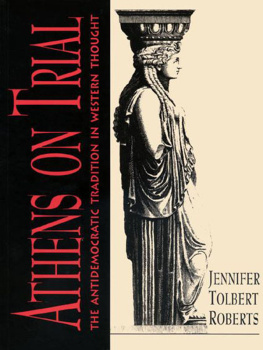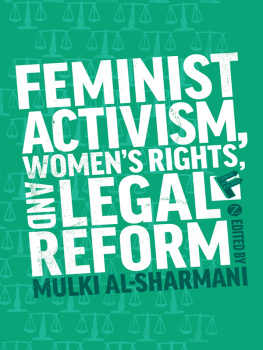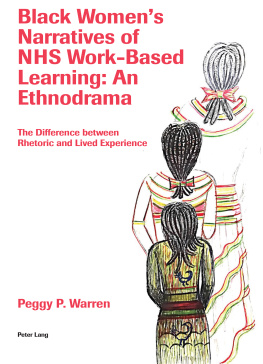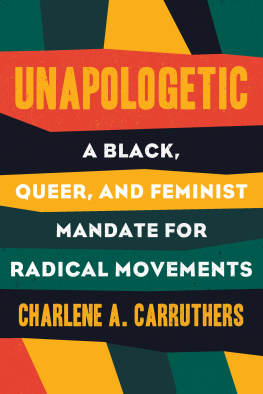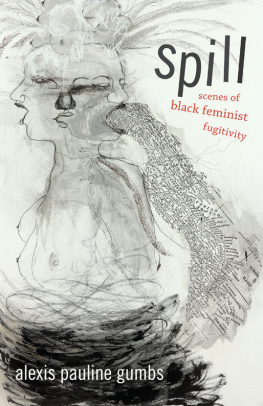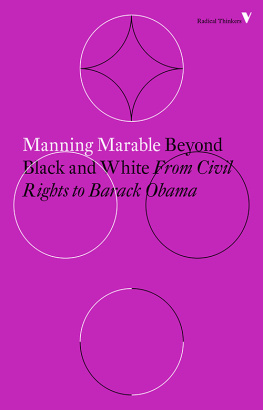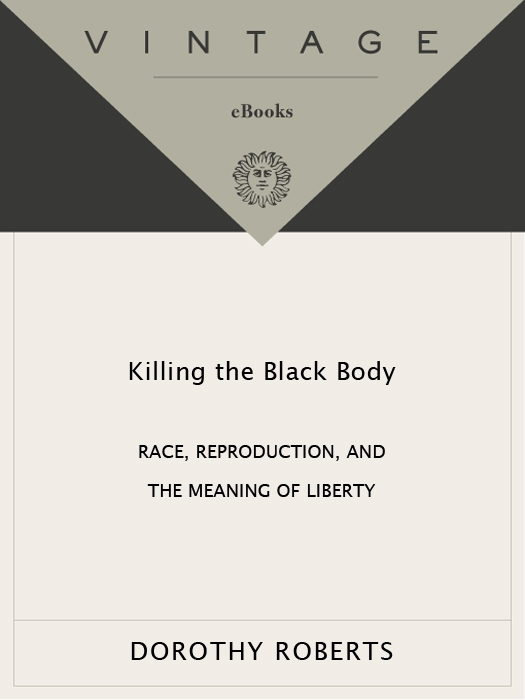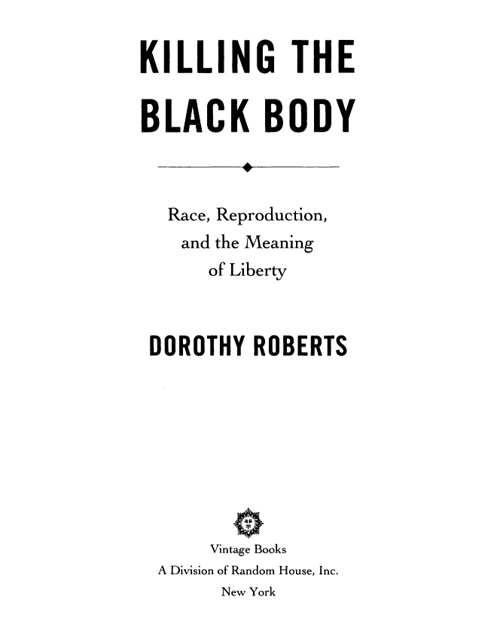DOROTHY ROBERTS
KILLING THE BLACK BODY
Dorothy Roberts graduated from Yale College and Harvard Law School. The author of more than forty articles and essays that have appeared in, among other publications, the Harvard Law Review and The New York Times, she is a professor at Northwestern University School of Law, where she teaches courses in criminal and family law and civil liberties. She lives in Evanston, Illinois.
FIRST VINTAGE BOOKS EDITION, JANUARY 1999
Copyright 1997 by Dorothy Roberts
All rights reserved under International and Pan-American Copyright Conventions. Published in the United States by Vintage Books, a division of Random House, Inc., New York, and simultaneously in Canada by Random House of Canada Limited, Toronto. Originally published in hardcover in the United States by Pantheon Books, a division of Random House, Inc., New York, in 1997.
Grateful acknowledgment is made to the Sophia Smith Collection, Smith College, for permission to reprint excerpts from the Margaret Sanger Papers. Reprinted by permission of the Sophia Smith Collection, Smith College, Northampton, Massachusetts.
The Library of Congress has cataloged the Pantheon edition as follows:
Roberts, Dorothy, 1956
Killing the black body: race, reproduction, and the meaning of liberty / Dorothy Roberts.
p. cm.
ISBN 0-679-44226-X
1. Birth controlUnited States.
2. Afro-American womenCivil rights.
3. Welfare recipientsUnited States.
4. Race discriminationUnited States. I. Title.
HQ766.5.U5R58 1997
363.960973dc21 97-2383
Vintage ISBN: 0-679-75869-0
eBook ISBN: 978-0-8041-5259-4
Author photograph Barbara A. Kretzschmar
www.randomhouse.com
v3.1
To my precious children,
Amilcar, Camilo, and Yaosca
Contents
3 FROM NORPLANT TO THE CONTRACEPTIVE VACCINE
The New Frontier of Population Control
5 THE WELFARE DEBATE
Who Pays for Procreation?
Acknowledgments
T his book is the product of eight years of research and writing about race and reproductive freedom. I have countless people to thank for their comments as I have presented my ideas at workshops, conferences, and seminars over that period. Rutgers University School of Law, and Deans Peter Simmons and Roger Abrams, provided a wonderfully supportive environment for my work. Yale Law Schools invitation to deliver the 1993 Thomas Lecture, which I entitled Race and Reproduction, provided the spark. My fellowship at Harvard Universitys Program in Ethics and the Professions, directed by Dennis Thompson, gave me the opportunity to start writing this book. Martha Finemans Feminism and Legal Theory Workshops at Columbia Law School and the Northeast Corridor of Black Women Law Professors were especially helpful.
I am indebted to numerous scholars who read and commented on papers that contributed to this book, including Taunya Banks, Joan Callahan, Norman Cantor, Rebecca Dresser, Nancy Ehrenreich, Judith Greenberg, Dwight Greene, Joel Handler, Kenneth Karst, Howard Latin, Nadine Taub, George Thomas, and Iris Marion Young. My thinking on welfare benefitted from conversations with Marion Smiley and Lucie White. Anita Allen, Regina Austin, Derrick Bell, Jerome Culp, Peggy Davis, Martha Fineman, Martha Minow, Jim Pope, and Susan Wolf deserve special recognition for their inspiration and support. Peggy Davis and Susan Wolf also generously commented on the final manuscript and improved it immensely.
One of the many privileges of being a law professor is having the benefit of research assistants. I would like to thank the following Rutgers Law School graduates whose invaluable research contributed to this book: Anita Brown, Decanda Faulk, Marianne Hatcher, Donna Jackson, Nina Loewenstein, Bronwen Mantlo, Elizabeth Marshall, Frederick Morton, Eric Pennington, Deborah Reid, Mavel Ruiz, Sandra Satchell, Valenicia Smith, Lysette Toro, Claudia Wernick, and Andrea Williams. I am also grateful to Simone Sandy, who provided research and friendship during my fellowship year at the Program in Ethics and the Professions. A team of Rutgers students (Elliot Monteverde-Torres, Melanie Routh, Margaret Hall, Kevin Kreisler, Theodora McCormick, and Eileen OToole) helped in the final stages of writing this book. Secretaries Bobbie Leach at Rutgers and Helen Hawkins at Harvard also provided important assistance.
I greatly appreciate the contributions of several organizations that generously sent me court papers, newsletters, and other information: ACLU Reproductive Freedom and Womens Rights Projects, ACLU of Chicago, Center for Reproductive Law and Policy, National Black Womens Health Project, National Womens Health Network, NOW Legal Defense and Education Fund, Planned Parenthood Federation, and Puerto Rican Legal Defense and Education Fund. I am also grateful to Wendy Chavkin, Sherrill Cohen, Deb Ellis, Lori Valencia Greene, Alexandra Halkin, Mary Faith Marshall, Lynn Paltrow, Nina Perales, Julia Scott, and Judith Scully for discussions and interviews.
I am indebted to several people who helped me turn my years of research into a book. Jane Alexander encouraged me to take the book to a broader audience and suggested my agent and publisher. My agent, Kathy Robbins, and my editor at Pantheon, Erroll McDonald, believed in this project from the start and gave me sound advice. Marya Vant Hul at Beacon Press and Bruce Nichols at The Free Press also encouraged me early on.
I could not have completed this book without the loving embrace of friends and family, who discussed my ideas, endured my preoccupation with writing, and watched my children. I am deeply grateful to Brenda and Alva Drakes, Michael Hanchard, Sheryl Jackson, Lela Jackson, Debra and Major Jennings, Sonya Smith, Nancy Tart, and Pamela Tyler for all their support. I appreciate the prayers of Rev. Michael Harriot and my friends at St. Marks United Methodist Church. My parents, sisters, husband, and children have blessed me with the most incredible love and commitment.
Some of the material in this book previously appeared in the following law review articles: Punishing Drug Addicts Who Have Babies: Women of Color, Equality, and the Right of Privacy, Harvard Law Review 104 (1991), p. 1419; The Genetic Tie, University of Chicago Law Review 62 (1995), p. 209; Irrationality and Sacrifice in the Welfare Reform Consensus, Virginia Law Review 81 (1995), p. 2607; Welfare and the Problem of Black Citizenship, Yale Law Journal 105 (1996), p. 1563; and Race and the New Reproduction, Hastings Law Journal 47 (1996), p. 935.
Introduction
The painful, patient, and silent toil of mothers to gain a fee simple title to the bodies of their daughters, the despairing fight, as of an entrapped tigress, to keep hallowed their own persons, would furnish material for epics.
ANNA JULIA COOPER, 1893
I n 1989, officials in Charleston, South Carolina, initiated a policy of arresting pregnant women whose prenatal tests revealed they were smoking crack. In some cases, a team of police tracked down expectant mothers in the citys poorest neighborhoods. In others, officers invaded the maternity ward to haul away patients in handcuffs and leg irons, hours after giving birth. One woman spent the final weeks of pregnancy detained in a dingy cell in the Charleston County Jail. When she went into labor, she was transported in chains to the hospital, and remained shackled to the bed during the entire delivery. All but one of the four dozen women arrested for prenatal crimes in Charleston were Black.





